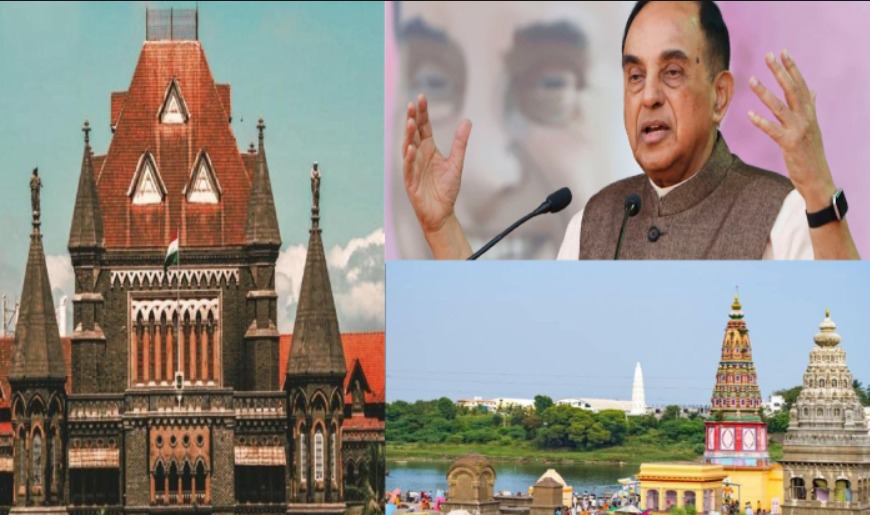
Former Rajya Sabha member and BJP leader Subramanian Swamy on Friday has approached the Bombay High Court, seeking that the Pandharpur Temples Act (PTA) of 1973 be declared as unconstitutional and discontinued.
The PIL filed by Swamy will be heard on February 21, 2023.
Swamy’s argument is that the temples’ affairs were heavily mismanaged in terms of religious offerings and that temple rituals were not being followed according to Hindu customs. According to his petition, this had a negative impact on Hindu religious sentiments and fundamental rights.
The petition has sought the interim relief of forming a committee in consultation with the priests and devotee representatives (Warkaris) to manage the temple appropriately and independently of the government.
According to the petition, the state government abolished all hereditary rights, privileges of ministers, and priestly classes that existed for governance and administration in the Pandharpur temples of the gods Vitthal and Rukmini. It essentially gave the state government control over the administration and management of funds.
The petition also stated, “By seizing control of the Pandharpur temples, the government is removing Hindus’ rights to profess, practise, and propagate their religion, as well as manage Hindu Religious Endowments and their own religious affairs. It is also stated that, despite the fact that the Pandharpur Temples Act was passed in 1973, the administration remained with the previous priest until 2014, when the government took over administration of the temple.”
The plea further added, “Even if the management of a temple is taken over to remedy the evil, the management must be returned to the person concerned as soon as the evil has been resolved. Continued takeover after the evil has been remedied would constitute usurpation of proprietary rights or a violation of fundamental rights guaranteed by the Constitution.”
“The role of a priest in the instant matter is entirely religious, and such interference is a violation of Articles 25 and 26 of the Indian Constitution, read with freedom of faith and belief to worship under the Preamble,” the PIL stated.




